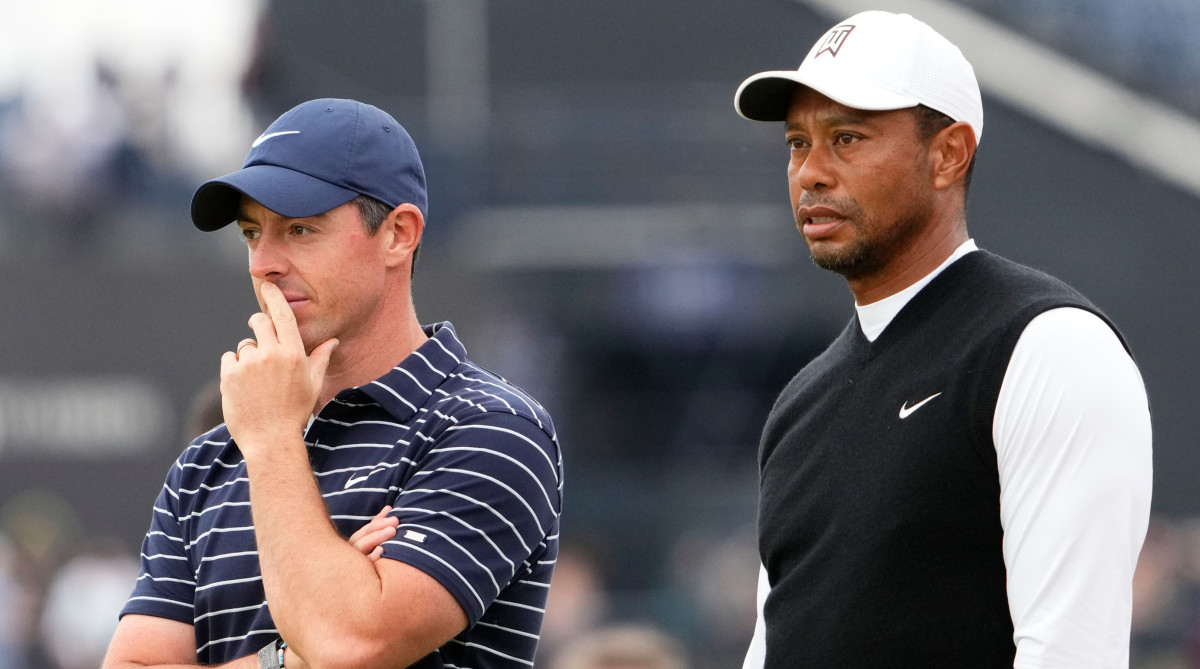It’s Now Up to the PGA Tour Players to Decide Whether They Care About the Source of Their Wealth

The future of men’s professional golf hinges on whether specific moral questions matter. Are PGA Tour players cool with taking Saudi Arabia’s Public Investment Fund money, or not? Were they actually offended that they might be used by a murderous regime, or not?
Commissioner Jay Monahan is counting on them not caring. He is counting on his players just wanting to play the best version of tournament golf for as much money as possible. He has staked his career on it.
If Monahan is right, he wins. He kills LIV Golf, makes the PGA Tour stronger than it has ever been and becomes the most powerful commissioner in the history of golf. Even Deane Beman did not oversee pro golf throughout the world.
If players don’t care about the source of the money, they will realize that they are about to get paid a lot more. I know the PGA Tour–Saudi deal is not final, and there is more that we don’t know than we do. But when you add billions to the pot, players get much richer; how it happens is a matter of details. Monahan probably has a much more specific plan for enriching his best players than he has let on. He knows how much money some of his stars turned down from LIV. He knows he has to make it up to them, and he has the money to do it.
Yes, they turned down a ton of money to stay loyal to the PGA Tour. Of course they were livid when the news came down and they felt like Monahan sold them out. But now Monahan can tell them: “You can still get most of that money and say you stayed loyal to the PGA Tour.” He can tell them they get to play on a better, more lucrative tour, with no threat from LIV and no questions about LIV, because LIV as we knew it won’t be around. Players can also say they are just doing what they have always done: playing serious competitive golf against the best players on the top tour in the world.
Naturally, players felt blindsided; the PGA Tour is supposed to be a player-run organization, and none of them knew what was happening. But Monahan can explain that billion-dollar deals don’t happen with a hundred people in the room—and anyway, not knowing is good for them. The media can’t say they sold out when they had no say in the matter. They can complain they were just pawns and now they have no choice but to go along.

He also surely has a much clearer idea of golf’s future structure than the public does—and more control over it than people seem to realize. Monahan seemed prepared to weather the initial outrage from players; he said afterward his meeting with players was “heated” and “this is an awful lot to ask them to digest.” Maybe they are so upset that they will try to kill the deal and oust him. Monahan clearly believes when he comes back to them with specifics, they will like what they hear.
He is probably right … if the players don’t care about the source of the money.
It’s a big, soulless bet. The Saudis are not pouring billions into golf because they are fascinated with swing theories and greens complexes. They want a seat at the table of respected global elites, and they want people to ignore the government’s deplorable human-rights record and alleged connection to 9/11.
Monahan has claimed the moral high ground regularly in the past year, a stance of convenience that makes it hard for anybody with a conscience to look at him the same way again. He was desperate. He grossly underestimated the LIV threat until several stars bolted last year, then used every possible weapon and argument to save his tour and job. Now he is counting on players who backed him to ignore his shameless public fraudulence.
I have criticized the Saudi royal family’s attempts to buy a cleaner image many times. I expect to do so again. I would have much preferred that the PGA Tour win its fight with LIV without cutting this deal, and I believe the Tour was well on its way to doing so.
But Monahan is betting that his players prefer this route—that they want a guaranteed triumph now and bundles of Saudi money later. And yes, relative to where things stood for the past year, this is a win for the Tour over LIV. Ignore the talk of a “merger.” If this deal goes through as Monahan plans, there will be a single dominant entity overseeing men’s golf, it will probably look like the current PGA Tour, and Monahan will run it. But there are still those moral questions.
There is some nuance to this: The issue is not just the source of the money, but the strings attached to it. LIV players essentially signed to be employees of the Saudi royal family. They were beholden to them and often sounded like it to an embarrassing degree. Jordan Spieth, Rory McIlroy and Collin Morikawa did not cut that deal. Presumably, they can stay on tour, earn a ton more money—and, if they choose, use every press conference to denounce the treatment of the LGBTQ community in Saudi Arabia.
We don’t know what PIF head Yasir Al-Rumayyan and the Saudi crown prince Mohammed bin Salman Al Saud expect out of this deal. A Tour Championship in Riyadh? Sponsorship opportunities to whitewash their reputation? It is quite possible some of us will find it outrageous but players will find it palatable.
Ultimately, players will have to decide whether they care about the source of the money and whether they’re comfortable with whatever Monahan agreed to do to get it. Jay Monahan spent a year saying this was wrong, only to turn around and say it is right. Players followed him then. Will they follow him now?
